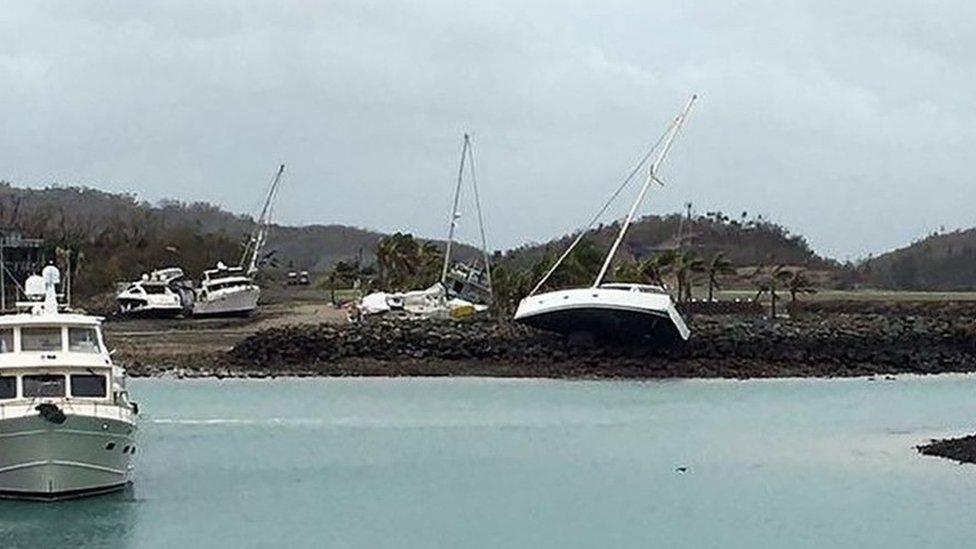Cyclone Debbie: Australia floods force more evacuations
- Published
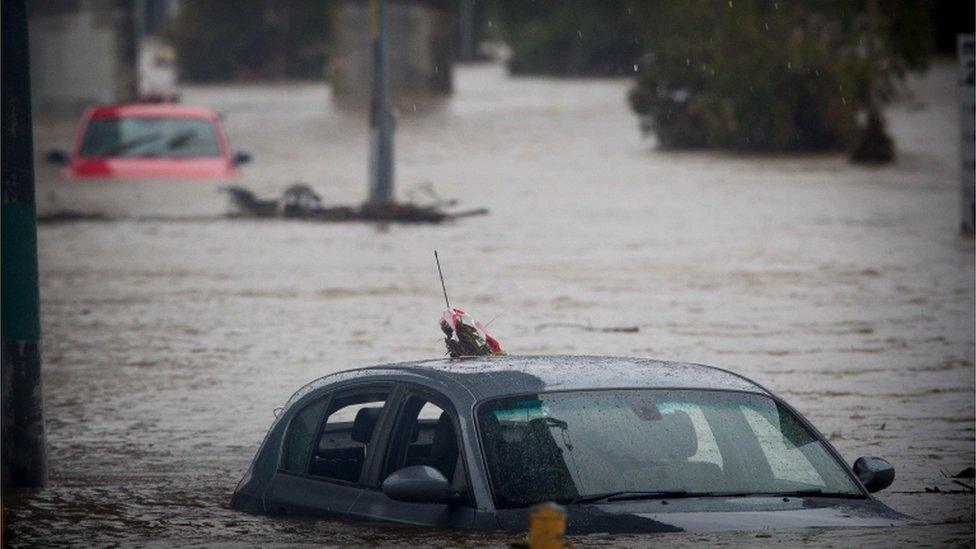
Driving rain has hit a 1,200km (745-mile) stretch of Australia's east coast, causing widespread flash flooding
Australian authorities have told about 40,000 people to evacuate to higher ground as flash flooding in the aftermath of Cyclone Debbie worsens.
The storm hit Queensland's most populous region on Thursday after pummelling the north-east coast for two days.
The state's capital, Brisbane, was hit with 20cm (8ins) of rain in two hours.
More than 2,000 schools have been forced to close as tens of thousands of people remain without power.
"We have not seen the worst of this weather system in the south-east," said Queensland Premier Annastacia Palaszczuk.
Every school in an almost 600km (370-mile) area stretching from Agnes Water to Coolangatta will remain closed until at least Monday, she said.
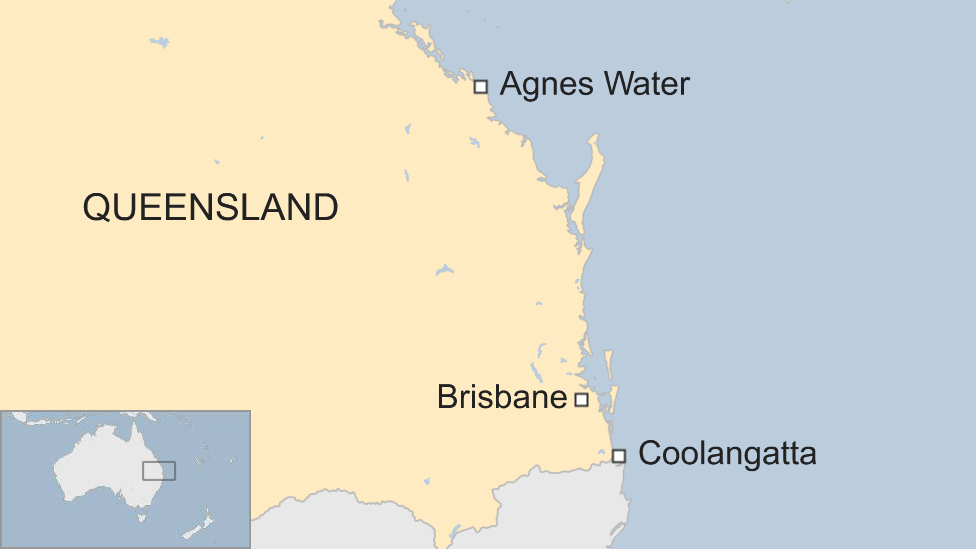
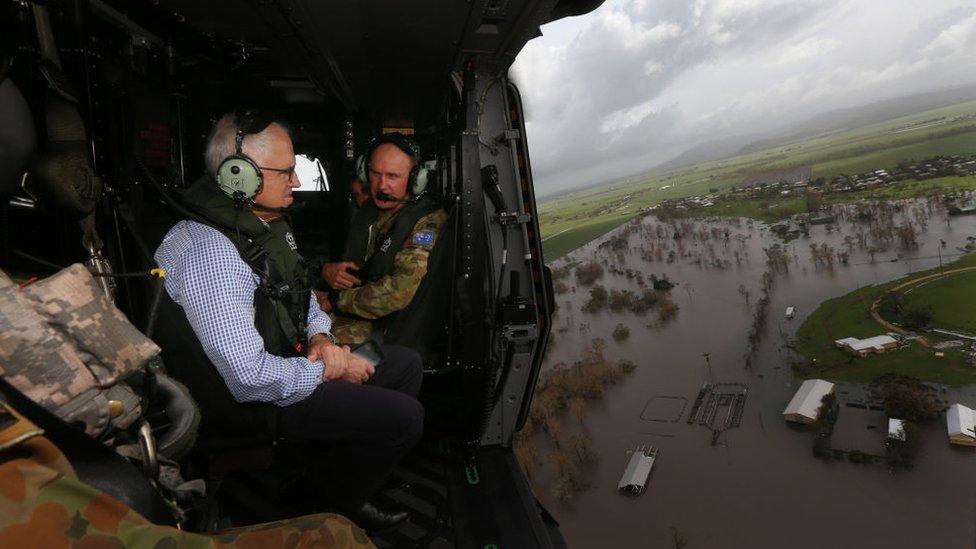
Prime Minister Malcolm Turnbull surveys the cyclone damage from a military helicopter
Authorities pleaded with people to stay off roads and close shops, saying dozens of people had been rescued from floodwaters.
"Now is the time to leave. Do not delay. Evacuation orders are mandatory," New South Wales State Emergency Service said on Twitter on Thursday, external.
Rescues under way
Queensland Fire and Emergency Services Commissioner Katarina Carroll said it was "extraordinary" there had not been more injuries, criticising one person seen on a jet ski.
"What our worst fears are is that people do silly things like this, and this is when the tragedy will occur," she told the local Nine Network.
"Please keep your children away from drains [and] stay in your house."
Australia's Bureau of Meteorology said parts of south-east Queensland could see up to 40cm of rain on Thursday.
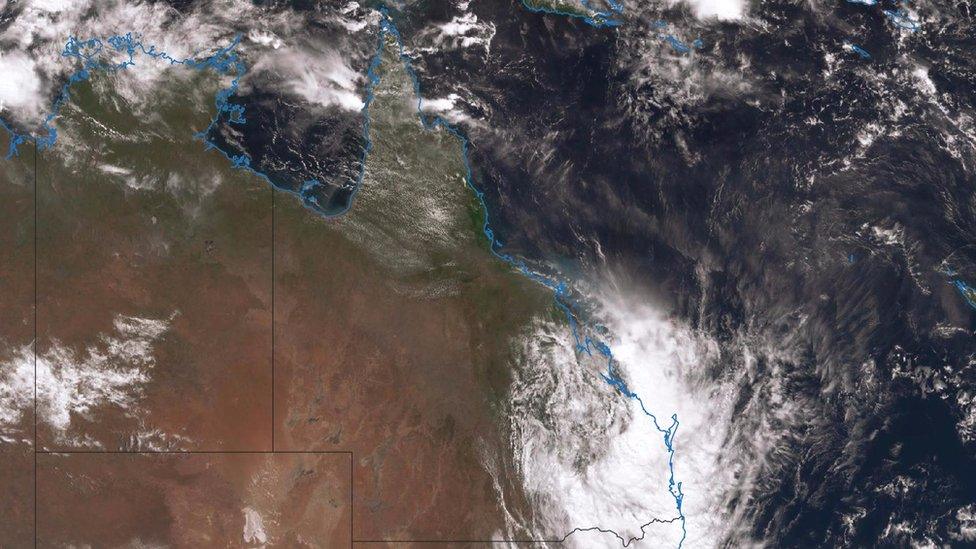
A satellite image of the storm system over south-east Queensland
"What we know is that we are anticipating the heavy falls in a short duration of time," senior forecaster Matthew Bass said.
Resorts along the Whitsunday coast bore the brunt of the storm with wind gusts of more than 260 km/h (160 mph).
Assessing damage
Cyclone Debbie made landfall in north-east Queensland as a category four system on Tuesday.
Prime Minister Malcolm Turnbull said nature was "flinging her worst" at Australians.
"It is going to take some time to recover, and that's why we are here to show our support and commitment," he said from Bowen, a damaged town in northern Queensland.
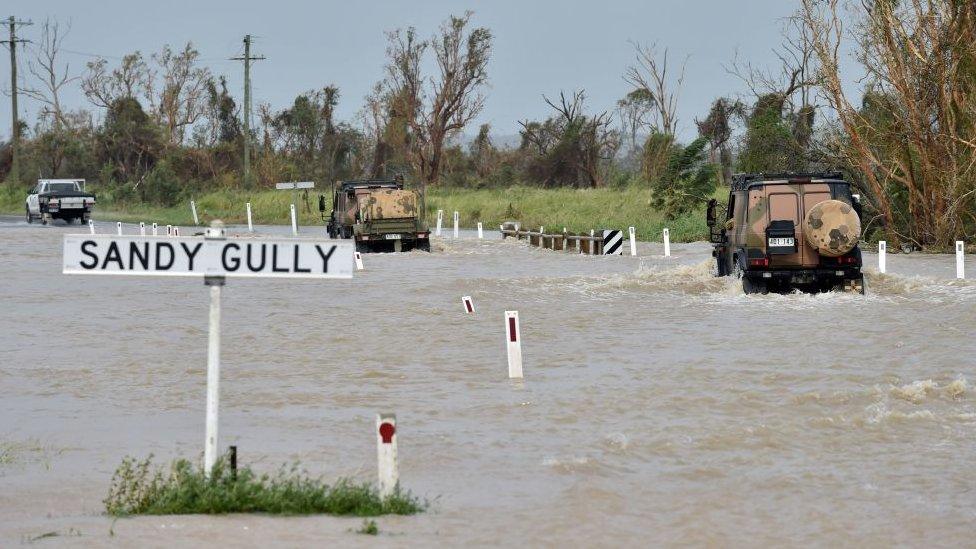
The Australian Defence Force has been deployed to assist recovery efforts
Authorities in Queensland said on Thursday that 61,000 homes remained without power, and there was major damage to buildings, sugar cane and tomato crops.
Tourism operators state-wide reported cancelled bookings and anticipated long-term disruption to their trade.
Meanwhile, thousands of insurance claims have already been filed, but the state's insurers said it was too early to accurately assess the cost of the damage.
The cyclone is also likely to have damaged the Great Barrier Reef, marine experts warned.
- Published30 March 2017
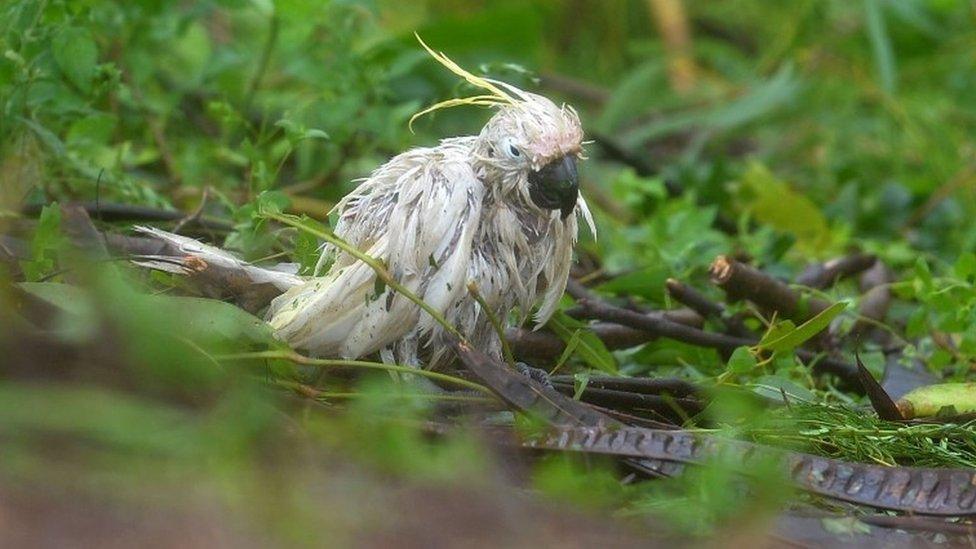
- Published28 March 2017
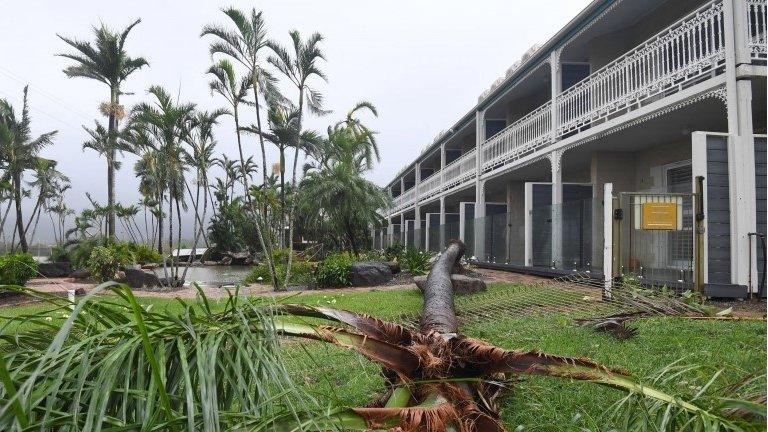
- Published28 March 2017

- Published29 March 2017
